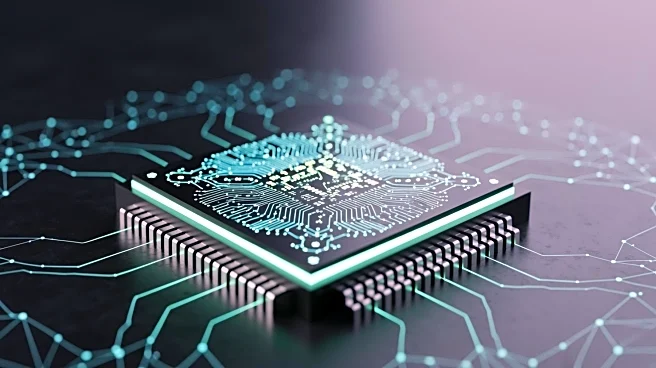What's Happening?
A Wall Street Journal investigation has uncovered how 2,300 Nvidia Blackwell AI chips were transported to China through an Indonesian telecoms provider, despite existing U.S. export restrictions. The chips were initially purchased by Aivres, a Silicon
Valley-based AI server manufacturer, and subsequently sold to Indosat Ooredoo Hutchison, an Indonesian company. The servers, containing the chips, were then delivered to INF Tech, a Chinese AI startup, for use in training AI models for financial and scientific applications. This transaction highlights the complexities of enforcing export controls on advanced technology.
Why It's Important?
The transfer of Nvidia's high-end AI chips to China raises concerns about the effectiveness of U.S. export controls designed to prevent advanced technology from reaching Chinese entities. This situation underscores the challenges faced by U.S. companies in navigating international trade regulations, particularly in the context of U.S.-China relations. The chips' use in AI development could enhance China's capabilities in this critical field, potentially impacting global technological competition. The incident also highlights the need for robust compliance measures to ensure that export restrictions are adhered to by all parties involved.
What's Next?
The U.S. government may need to review and potentially tighten its export control policies to prevent similar occurrences in the future. This could involve increased scrutiny of transactions involving sensitive technologies and closer monitoring of companies involved in the supply chain. Additionally, the incident may prompt discussions between the U.S. and its allies on how to effectively manage the flow of advanced technology to countries like China. Companies involved in the export of such technologies may also need to enhance their compliance frameworks to avoid potential legal and reputational risks.
Beyond the Headlines
The transfer of Nvidia chips to China highlights broader geopolitical tensions surrounding technology and trade. As countries vie for dominance in AI and other advanced fields, the control of critical technologies becomes a strategic priority. This incident reflects the ongoing struggle between the U.S. and China over technological leadership, with implications for global economic and security dynamics. The situation also raises ethical questions about the responsibilities of companies in ensuring that their products are not used in ways that could undermine national security or international stability.















